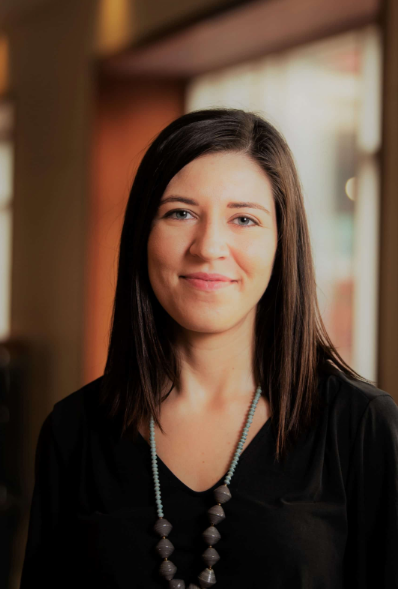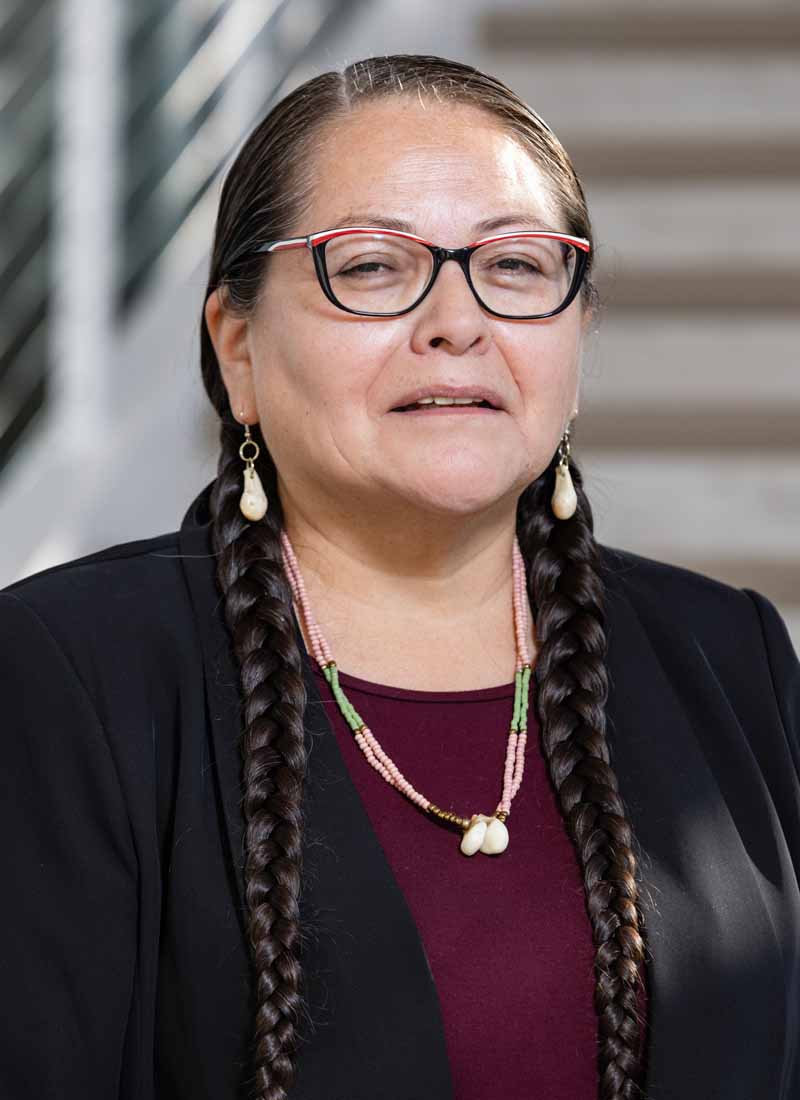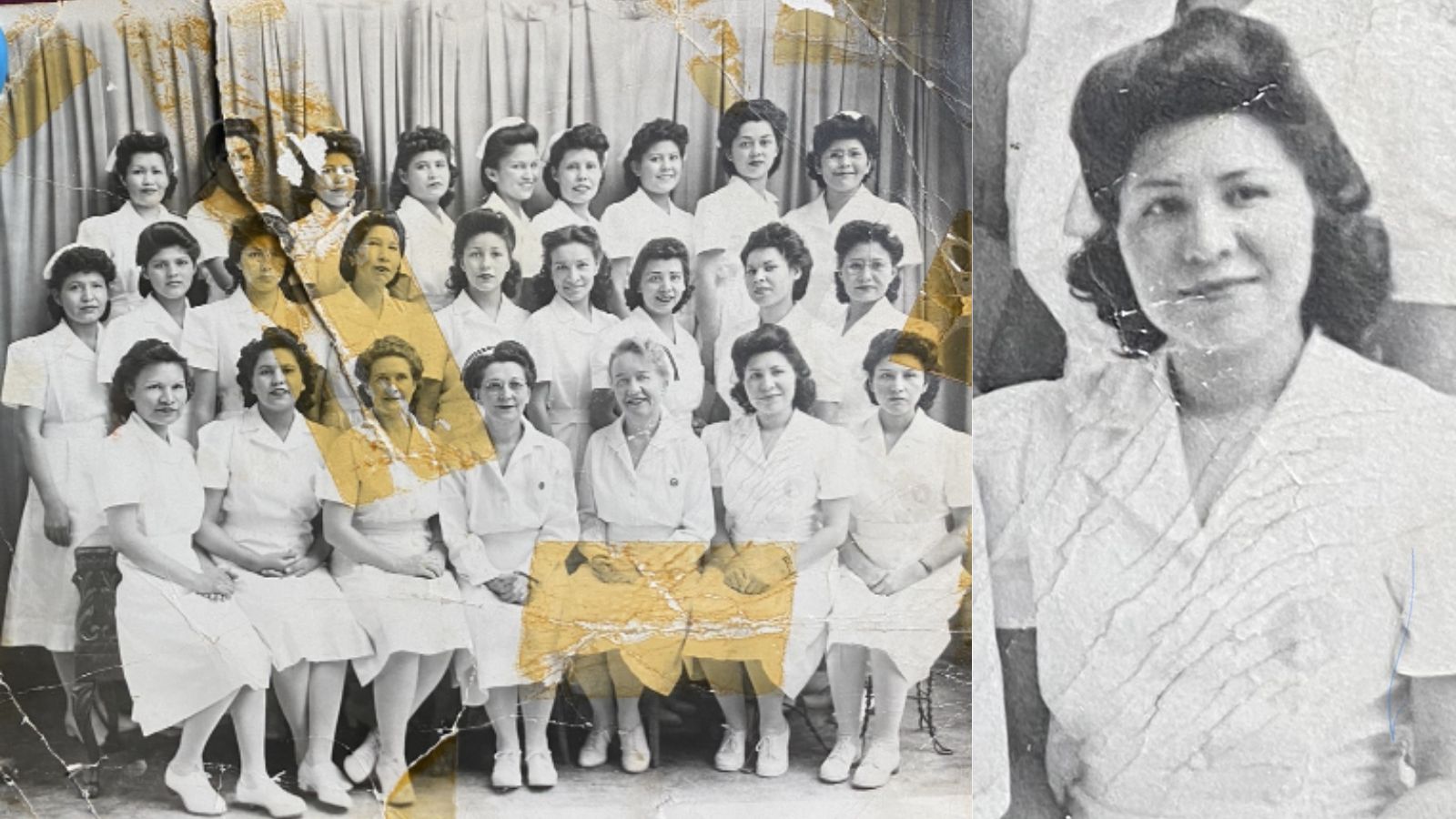I always wanted to be a nurse because I love to help people.
Louise Three stars Smith
Louise Three Stars Smith, known to most as Grandma Louise, celebrated her 100th birthday in August of 2023. She was a nurse with the Indian Health Service for 44 years and her career exemplified a life-long commitment to the health of her people.
Born in Hisle, South Dakota in 1923, Three Stars Smith is an enrolled member of the Ogallala Sioux from Pine Ridge. She graduated from Ogallala Community High School in 1943 and attended nursing school in Lawton, Oklahoma.
Three Stars Smith graduated nursing school in 1945, in the midst of World War II. She was sent to the Indian Health Service in Poplar, Montana (now a clinical but then a full hospital) on the Fort Peck Indian Reservation for her first assignment.
Arrival in the small town of Poplar, Montana was not what she expected. “I didn’t know I was coming to a one-horse, buggy town,” she noted.
Despite her first impressions, Three Stars Smith made Fort Peck her home after meeting her husband, Buck, at a rodeo in 1946. She has lived in Fort Peck ever since, raising her four children and loving many grandbabies. She has since retired from nursing and now lives with her family in Wolf Point, Montana, the largest town on the Fort Peck Reservation.
When asked about her time as a nurse, Three Stars Smith recalls joking with her patients, highlighting the importance of humor in healing, and building relationships as some of her fondest memories. After years of pursuing her passion and helping her people, Three Stars Smith can confirm, “It’s very rewarding.”
What’s One Piece of Advice for New Native Nurses?
When asked to give one piece of advice to Native nurses just beginning their career, Three Stars Smith provides simple, yet powerful wisdom: “Always be compassionate about your work and help your people.”
Native nurses like Louise Three Stars Smith have compassion and commitment; it continues to bring healing and culturally safe health care to Native communities. Three Stars Smith’s story and service emphasize the importance of Native health care providers in achieving health equity.
Native nurses today continue the path of healing, bringing their communities and future generations along the journey.
Read More:
- What Works: Community-Led Research Promotes Evidence-Based Strategies to Improve Indigenous Health by Championing Indigenous Nursing Practice
- Why Should I Pursue Nursing at Hopkins?
- Creating Inclusive Academic Spaces: The Role of Indigenous Allies
About The Authors: Ellie Decker & Teresa Brockie
Ellie Decker is Research Program Manager at the Johns Hopkins School of Nursing. She works on research and programs to promote Native youth wellness and prevent suicide on the Fort Peck and Fort Belknap Reservations, led by Dr. Teresa Brockie. Her research interests are focused on implementing culturally relevant interventions which promote wellness and decrease the risk of suicide across the lifespan.


Teresa Brockie, PhD, MSN, BSN, RN, FAAN, focuses on achieving health equity through community-based prevention and intervention of suicide, trauma, and adverse childhood experiences among vulnerable populations. A member of the White Clay (A’aninin) Nation from Fort Belknap, Montana, Dr. Brockie earned her PhD at the Johns Hopkins School of Nursing. She is an Associate Professor at the Johns Hopkins School of Nursing with a joint appointment at the Center for Indigenous Health at the Johns Hopkins Bloomberg School of Public Health.
